Manuel A. Rivas
Efficient computation and analysis of distributional Shapley values
Jul 02, 2020

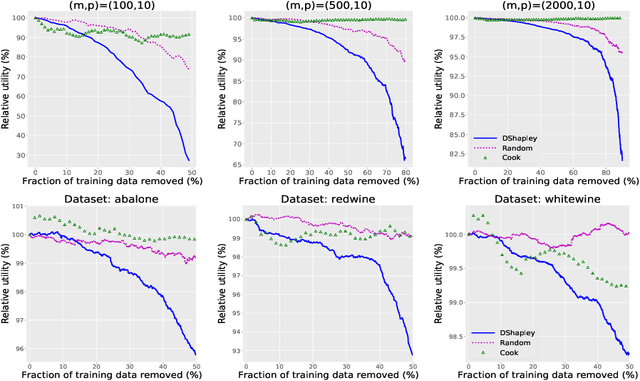
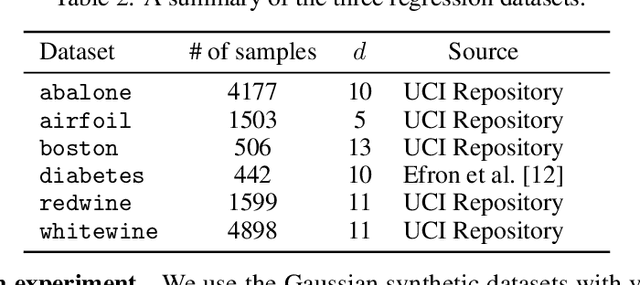
Abstract:Distributional data Shapley value (DShapley) has been recently proposed as a principled framework to quantify the contribution of individual datum in machine learning. DShapley develops the foundational game theory concept of Shapley values into a statistical framework and can be applied to identify data points that are useful (or harmful) to a learning algorithm. Estimating DShapley is computationally expensive, however, and this can be a major challenge to using it in practice. Moreover, there has been little mathematical analyses of how this value depends on data characteristics. In this paper, we derive the first analytic expressions for DShapley for the canonical problems of linear regression and non-parametric density estimation. These analytic forms provide new algorithms to compute DShapley that are several orders of magnitude faster than previous state-of-the-art. Furthermore, our formulas are directly interpretable and provide quantitative insights into how the value varies for different types of data. We demonstrate the efficacy of our DShapley approach on multiple real and synthetic datasets.
DeepTag: inferring all-cause diagnoses from clinical notes in under-resourced medical domain
Sep 03, 2018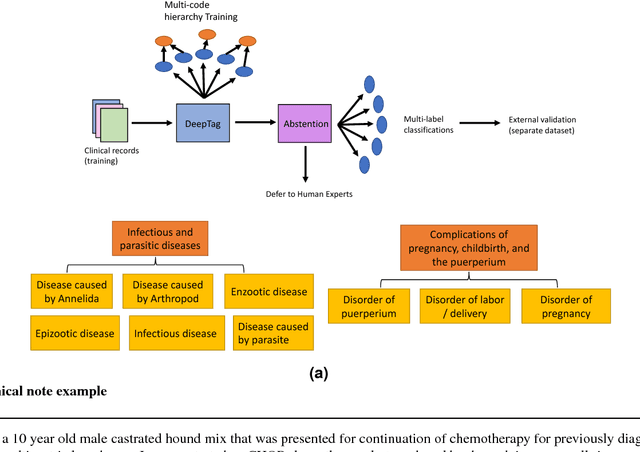
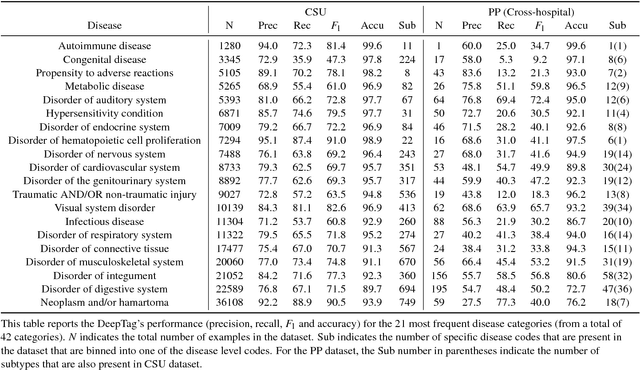
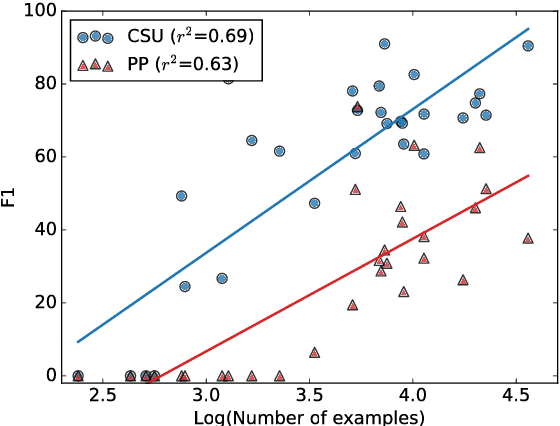
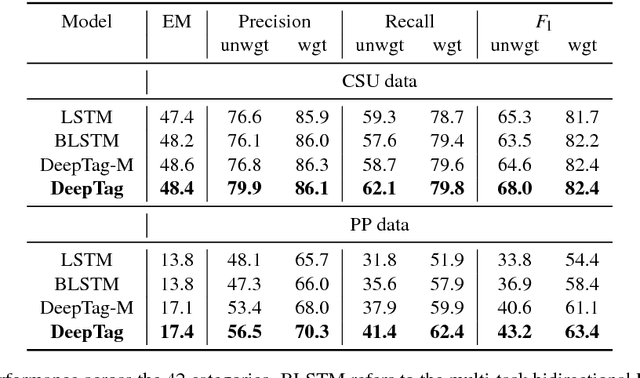
Abstract:Large scale veterinary clinical records can become a powerful resource for patient care and research. However, clinicians lack the time and resource to annotate patient records with standard medical diagnostic codes and most veterinary visits are captured in free text notes. The lack of standard coding makes it challenging to use the clinical data to improve patient care. It is also a major impediment to cross-species translational research, which relies on the ability to accurately identify patient cohorts with specific diagnostic criteria in humans and animals. In order to reduce the coding burden for veterinary clinical practice and aid translational research, we have developed a deep learning algorithm, DeepTag, which automatically infers diagnostic codes from veterinary free text notes. DeepTag is trained on a newly curated dataset of 112,558 veterinary notes manually annotated by experts. DeepTag extends multi-task LSTM with an improved hierarchical objective that captures the semantic structures between diseases. To foster human-machine collaboration, DeepTag also learns to abstain in examples when it is uncertain and defers them to human experts, resulting in improved performance. DeepTag accurately infers disease codes from free text even in challenging cross-hospital settings where the text comes from different clinical settings than the ones used for training. It enables automated disease annotation across a broad range of clinical diagnoses with minimal pre-processing. The technical framework in this work can be applied in other medical domains that currently lack medical coding resources.
 Add to Chrome
Add to Chrome Add to Firefox
Add to Firefox Add to Edge
Add to Edge